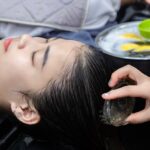Why Do You Get Back Acne?
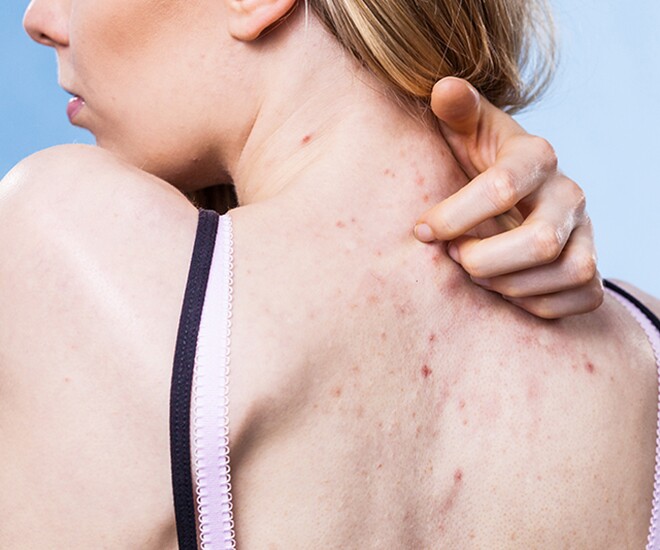
Overactive sebaceous glands + improper hygiene: The sebaceous glands in the back are just as active as those on the face. If you don’t shower immediately after sweating or maintain proper hygiene (for example, shampooing after showering), your pores can become clogged, leading to acne.
Residue from shampoo and conditioner: This may seem harmless, but it’s actually a “hidden enemy.” Products containing silicones or oils, if not rinsed thoroughly, will linger on your back, causing inflammatory and cystic acne.
Tight, non-breathable clothing: Sports bras, tight clothing, and non-breathable fabrics prevent your back from “breathing.” Combine that with summer sweat, and you’ve got the perfect recipe for a pesky type of acne called friction acne.
Stress + unhealthy diet: Hormonal imbalances caused by stress, coupled with a diet high in sugar and fat, create the perfect storm for acne, especially on your back.
Habits That Worsen Back Acne
1. Using a loofah every day
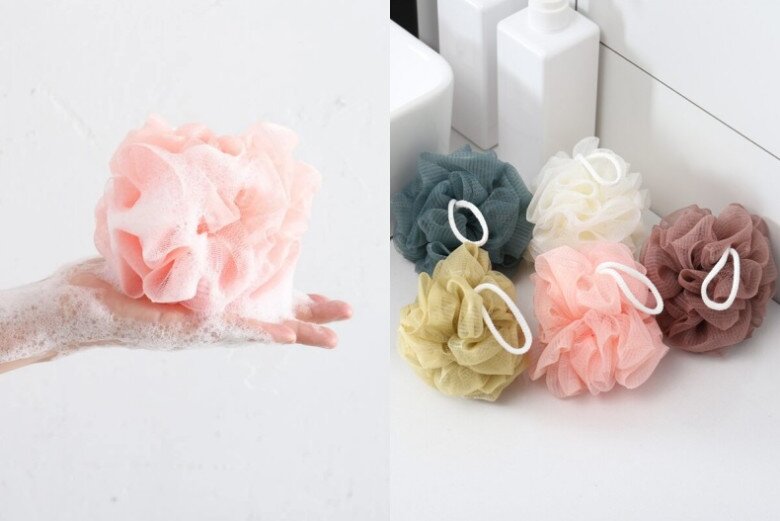
Many people use loofahs or sponges daily, hoping to deeply cleanse their skin and create a richer lather. However, dermatologists warn that overusing these tools can backfire.
The damp environment in bathrooms provides an ideal breeding ground for bacteria on loofahs and sponges if they’re not cleaned and stored properly. When these tools come into direct contact with your skin, especially your back acne or clogged pores, they can aggravate the condition.
To minimize risks, dermatologists recommend cleansing with your hands or, if you insist on using a loofah, ensure it’s thoroughly cleaned and replaced regularly to prevent prolonged or recurring back acne.
2. Showering with hot water
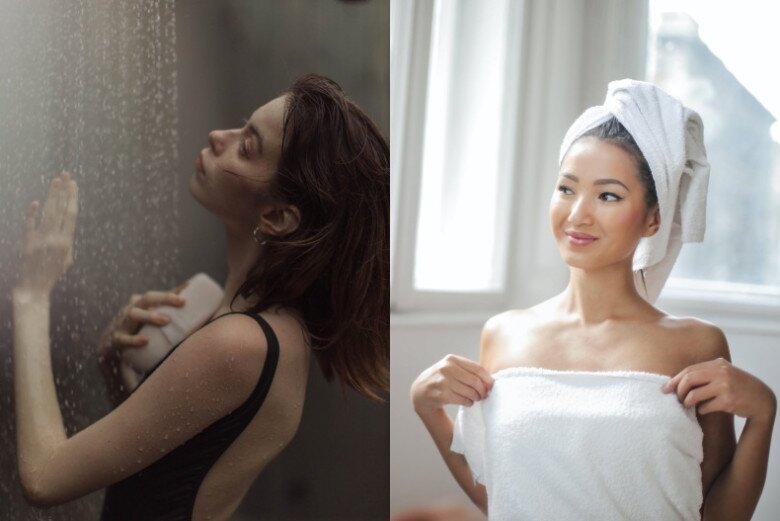
Hot showers are relaxing, but prolonged exposure to hot water can negatively affect your skin, especially your back. Dermatologists explain that extremely hot water can overly dilate pores and disrupt the skin’s natural protective barrier. Additionally, a prolonged hot and humid environment can make your skin feel suffocated, encouraging bacterial growth and acne formation.
To minimize irritation and back acne, dermatologists recommend keeping the water temperature below 42°C, and limiting shower time to 5–10 minutes.
3. Not wiping off sweat and showering after working out
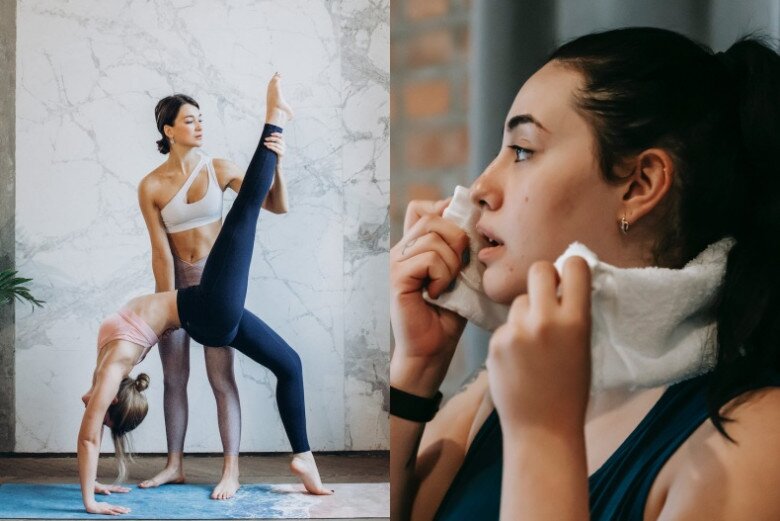
Exercising is a popular and consistent habit for many, even with busy schedules. However, a common mistake is neglecting to clean the body promptly after a workout. Allowing sweat and sebum to linger on your skin can lead to clogged pores and bacterial growth, especially in areas with active sebaceous glands like your back.
To reduce the risk of acne, it’s essential to shower and change clothes as soon as possible after exercising. Dermatologists suggest using a mild or pH-balanced body wash to cleanse your back, neck, chest, intimate areas, and other sweat-prone regions.
4. Over-exfoliating
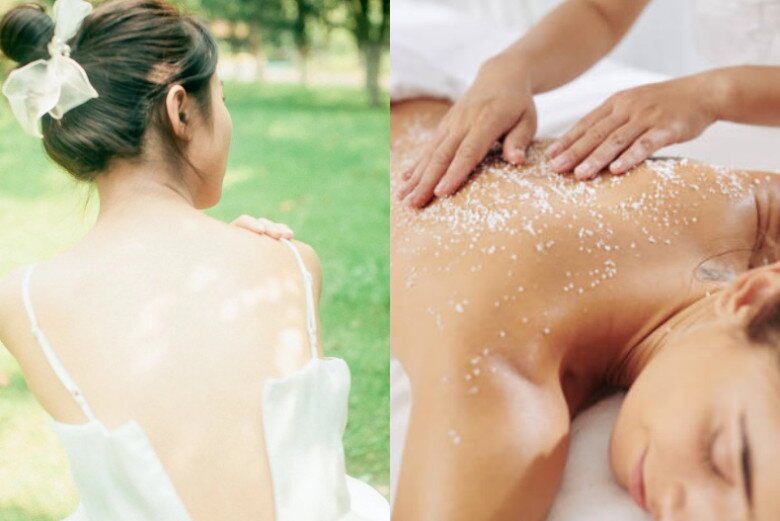
Dead skin cells and sebum buildup are primary causes of clogged pores, leading to whiteheads, blackheads, and inflammatory acne. For this reason, those with back acne often prioritize exfoliation to deep clean their skin and prevent acne.
However, over-exfoliation can be counterproductive. Daily exfoliation or using harsh products can damage the skin’s protective lipid layer, making it more sensitive and acne-prone.
A suitable exfoliation frequency for the body, including the back, is about 1–2 times a week. Opt for gentle, well-known, and suitable products for your skin condition.
5. Tilting your head back to rinse off conditioner
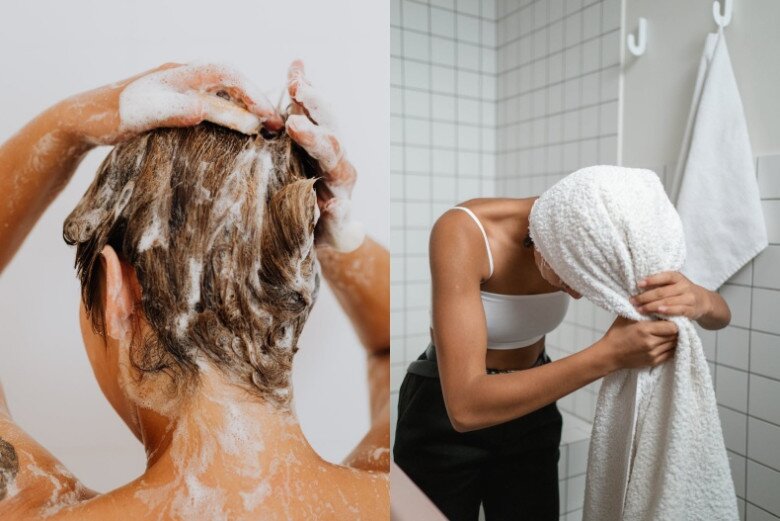
Tilting your head back to rinse off conditioner may seem harmless, but it can cause acne on your neck and back. When you rinse your hair in this position, conditioner—especially those containing silicones or rich emollients—can linger on your skin, clogging pores and causing acne.
To prevent this, experts advise changing your hair-rinsing habit. Specifically, after thoroughly rinsing your hair while tilted back, lean forward and use a gentle body wash or cleanser to thoroughly clean your neck and back. This ensures the complete removal of any residual product and reduces the risk of acne in areas that often come into contact with conditioner.
5 Tips to Effectively Improve Back Acne
To control and prevent back acne recurrence, it’s essential to adopt proper skincare habits in addition to lifestyle changes. Here are five expert-recommended suggestions:

1. Choose cleansing products with anti-acne ingredients
Opt for body washes or cleansers containing salicylic acid (BHA), tea tree oil, enzymes, or deep-cleansing ingredients that help remove dead skin cells and regulate oil production effectively.
2. Shower within 30 minutes after working out
After an intense workout, letting sweat and sebum linger on your skin can promote bacterial growth. Therefore, it’s best to shower and change into fresh clothes as soon as possible—ideally within 30 minutes of exercising.
3. Exfoliate and apply a back mask periodically
Exfoliate once a week and follow up with a cleansing back mask to keep pores clear and remove dirt and sebum buildup. Choose gentle products containing enzymes or natural ingredients that are safe for the body.
4. Prefer lightweight, non-comedogenic body lotions
For acne-prone skin, replace thick body butters with lightweight, oil-free lotions that may contain AHA or fruit acids to maintain hydration without clogging pores.
5. Change sleepwear and underwear daily, opting for breathable fabrics
Changing clothes frequently and choosing breathable fabrics (like cotton) is crucial in hot and humid weather. Non-breathable fabrics combined with sweat can make your skin more sensitive and acne-prone.
The Four Hourly Showers to Avoid: A Guide to Healthy Hair Care
“Superstitions surrounding the timing of hair washing are prevalent in many cultures, with certain hours of the day deemed inauspicious. These beliefs hold that washing your hair during these hours can lead to adverse health effects, including an increased risk of stroke. However, it’s important to separate fact from fiction. While maintaining a healthy hair care routine is important, there is no scientific evidence linking hair washing to an increased propensity for strokes. So, feel free to wash your locks whenever suits your schedule, and rest assured that your health is not at risk from this age-old superstition.”




























